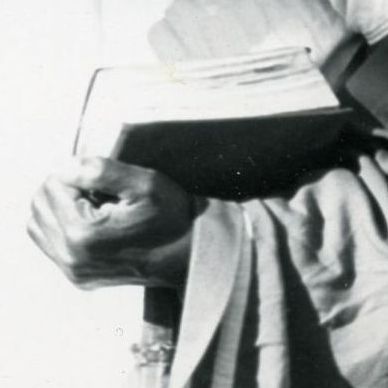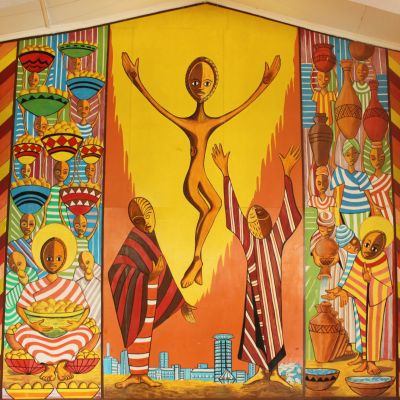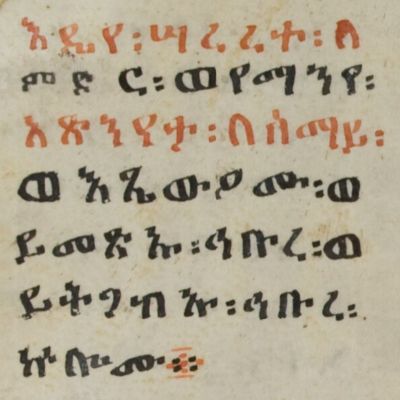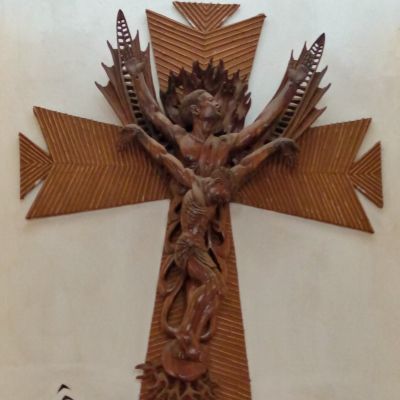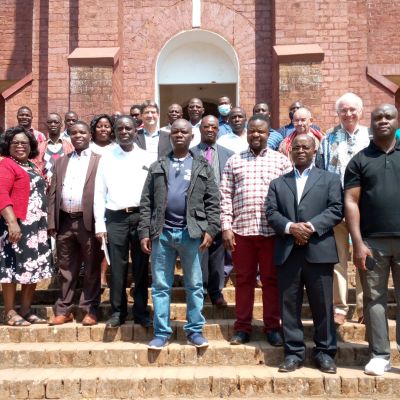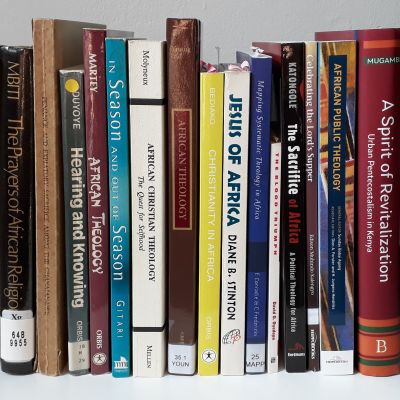Bibliographical Encyclopaedia of African Theology
Introduction
This section presents bibliographical articles on a range of topics in African theology and African Christianity. The articles help researchers and students to find their way around a quickly growing field. These articles cover more general texts on various topics, such as introductions, anthologies and existing bibliographies, and they bring publications together under particular areas of attention in these fields. The sub-sections may be organized differently – historically, geographically, thematically or otherwise – depending on what makes the most sense in a particular field.
A number of values shape how these articles are written. Articles cover both locally produced scholarship as well as publications from researchers outside the region – and of course from scholars who in various degrees and ways straddle both categories. We ask that authors try to include publications that are freely accessible on the internet as much as possible, so that students and scholars with no or limited access to academic libraries will be able to profit from at least a range of the resources mentioned. By encouraging this, and by choosing to be an Open Access resource itself, this Encyclopaedia wants to contribute to the democratisation of scholarship in a post-colonial world. It seeks to support and strengthen diverse forms of scholarship and voices from the margins of traditional academic centres both by making sources available and by making voices heard.
All articles also contain a section of ‘primary sources online’. This is an expression of the conviction that theologizing not only happens in academic texts, but that the lived theology of a community is in itself a form of ‘faith seeking understanding’. Such items are extremely diverse in character ranging from online sermons via artwork to policy documents. They are meant as illustrations that can be used in a teaching context since the range of possible materials is virtually inexhaustible.
These encyclopaedia articles are all refereed by specialists in the field. While some articles are commissioned by the editors we also invite potential authors to submit manuscripts to the editors. Guidelines for submission can be found here. If an author wants to propose an article, it is wise to consult with the managing editor as to whether the proposal fits the editorial policy of the encyclopaedia. As a first step, an author may want to begin to develop a corresponding bibliography. We hope that individual researchers and teams in the field of African theology and Christianity will consider the preparation of an article for the Bibliographical Encyclopaedia of African Theology and appropriate contributions as part of new research projects. We also want to publish articles as spin-offs of literature reviews that are part of PhD of post-doctoral projects; such articles may well be written jointly by junior researchers and their supervisors.
Theological sensitivities of the authors will influence the selection and organization of the resources listed. Yet, because these are encyclopaedia articles, both authors and editors have strived to make this resource usable for a range of readers that is as wide as possible, and have kept evaluations of the sources, and of the theological positions and developments they represent, to a minimum. Authors are encouraged to write more personal evaluations of the positions in a blog with the same title. These encyclopaedia articles are all linked to corresponding bibliographies elsewhere on this website. While the encyclopaedia articles are static and introduce a selection of resources, the bibliographies are intended to cover as many of the relevant sources as possible and keep growing as new articles are published. However, authors are encouraged to update their encyclopaedia articles every couple of years depending on the speed of developments in the field.
The Bible has been read in Africa since the time of the early church. Indeed, the history of Christianity in Africa could be written as the story of African readers understanding, translating, interpreting, explaining and applying its teachings. This article, however, limits itself to the most recent part of that story: the main developments that have taken place in the area of African biblical hermeneutics since the middle of the twentieth century.
Jesus’ question to his disciples, “Who do you say that I am?” (Mark 8:29), is understood to apply to believers of every generation and every place. In its singular form, ‘Christology’ is essentially the study of how Christians have responded to this question, or how they have understood and experienced Jesus Christ, who stands at the heart of our common faith.
Isaiah is a living text in Africa. Some African nations find themselves in the Isaiah texts, which they relate to current political and cultural experiences. For example, Egyptian Christians read Isaiah 19—a chapter expressing both judgment and salvation for Egypt—into the experiences of the 2010s and the Arab Spring.
Christianity is the majority religion in Malawi, espoused by some 80 percent of the population. Its history goes back to the celebrated nineteenth-century travels of David Livingstone and the Anglican and Presbyterian missions that he inspired. While some remarkable European missionaries were prominent in the early years of Christianity in the country, it was not long before Malawians were developing their own interpretations of the faith and offering leadership to a rapidly growing Christian movement.
Malawi has a rich and developing theological literature. The published work, however, rests on a theological endeavour that is largely unwritten. As Malawian individuals, families and communities have been reflecting theologically on their experience of Christianity over the past century and a half, the vast majority have not offered anything in written form. Their engagement with theological questions has found expression in symbol, ritual, music and the living of life.
Sacrifice is a classic theme in African theology. From Augustine’s profound discussion of the notion in De Civitate Dei, to the images of the Lamb of God in Ethiopian illuminated manuscripts, to the invocation of the blood of Jesus in Pentecostal prayers, the notion of sacrifice has played an important role in the lives of African Christians.
Help us improve the website!
- Submit Bibliography Items
- Submit Portal Items
- Submit News Items
- Submit Feedback
Featured encyclopaedia articles
Featured bibliographies
Recent blog posts
News
Newsletter
Sign up here to receive the ATW Newsletter, which provides updates about the platform and showcases valuable resources, as well as special announcements related to the field of African Christian Theology.


